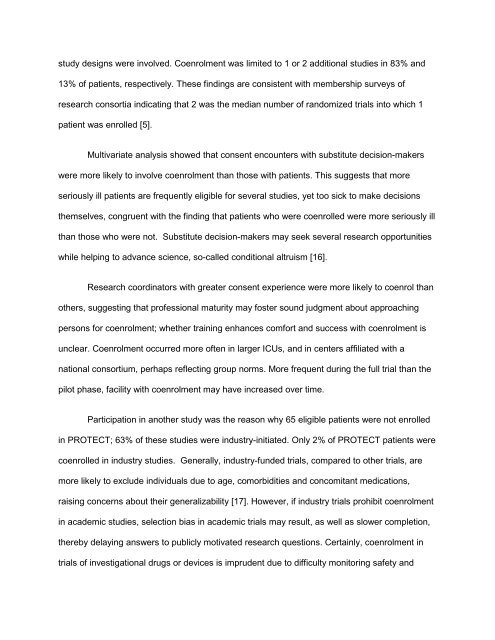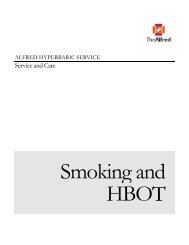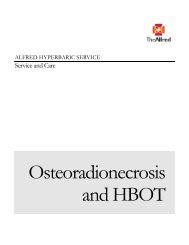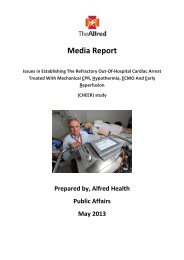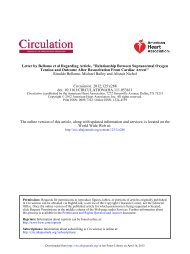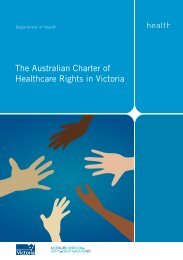Critical Care
See Full Article - Alfred Intensive Care Unit
See Full Article - Alfred Intensive Care Unit
- No tags were found...
Create successful ePaper yourself
Turn your PDF publications into a flip-book with our unique Google optimized e-Paper software.
study designs were involved. Coenrolment was limited to 1 or 2 additional studies in 83% and<br />
13% of patients, respectively. These findings are consistent with membership surveys of<br />
research consortia indicating that 2 was the median number of randomized trials into which 1<br />
patient was enrolled [5].<br />
Multivariate analysis showed that consent encounters with substitute decision-makers<br />
were more likely to involve coenrolment than those with patients. This suggests that more<br />
seriously ill patients are frequently eligible for several studies, yet too sick to make decisions<br />
themselves, congruent with the finding that patients who were coenrolled were more seriously ill<br />
than those who were not. Substitute decision-makers may seek several research opportunities<br />
while helping to advance science, so-called conditional altruism [16].<br />
Research coordinators with greater consent experience were more likely to coenrol than<br />
others, suggesting that professional maturity may foster sound judgment about approaching<br />
persons for coenrolment; whether training enhances comfort and success with coenrolment is<br />
unclear. Coenrolment occurred more often in larger ICUs, and in centers affiliated with a<br />
national consortium, perhaps reflecting group norms. More frequent during the full trial than the<br />
pilot phase, facility with coenrolment may have increased over time.<br />
Participation in another study was the reason why 65 eligible patients were not enrolled<br />
in PROTECT; 63% of these studies were industry-initiated. Only 2% of PROTECT patients were<br />
coenrolled in industry studies. Generally, industry-funded trials, compared to other trials, are<br />
more likely to exclude individuals due to age, comorbidities and concomitant medications,<br />
raising concerns about their generalizability [17]. However, if industry trials prohibit coenrolment<br />
in academic studies, selection bias in academic trials may result, as well as slower completion,<br />
thereby delaying answers to publicly motivated research questions. Certainly, coenrolment in<br />
trials of investigational drugs or devices is imprudent due to difficulty monitoring safety and


